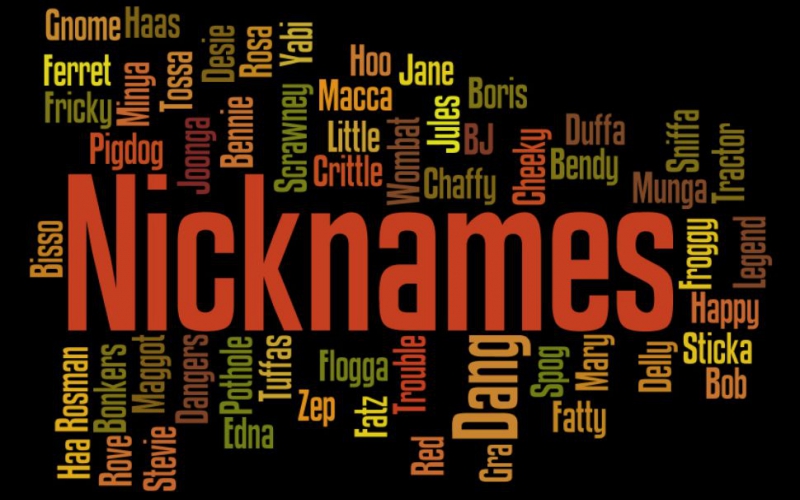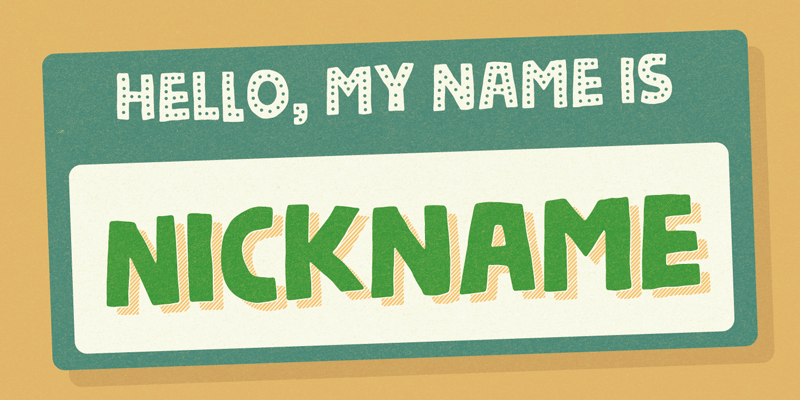Understanding Sobriquets

A sobriquet, also known as a byname, is a nickname, often an affectionate or humorous one, given to a person, place, or thing. It’s a name that’s adopted or bestowed upon someone, often reflecting a characteristic, trait, or achievement. Sobriquets have a rich history, often reflecting cultural and social norms of the time.
Examples of Famous Sobriquets
Famous sobriquets often reflect a person’s accomplishments, personality, or even a defining event in their life. Here are some notable examples:
- “The Iron Lady”: This sobriquet was given to former British Prime Minister Margaret Thatcher, reflecting her strong leadership and unwavering resolve.
- “The Bard”: William Shakespeare, the renowned English playwright and poet, earned this sobriquet for his masterful works of literature.
- “The King”: Elvis Presley, the iconic singer, was given this title due to his immense popularity and influence on popular music.
- “The Man of Steel”: Superman, the fictional superhero, was given this sobriquet due to his extraordinary strength and invulnerability.
Distinguishing Sobriquets, Nicknames, and Aliases
While these terms are often used interchangeably, there are subtle differences:
- Sobriquets are often more formal and often have a historical or cultural significance. They may be used in a more public or official context.
- Nicknames are typically informal and used in casual settings among friends and family. They are often humorous or affectionate and may be based on a person’s personality or appearance.
- Aliases are assumed names used to conceal one’s identity. They are often used in criminal activities or to protect one’s privacy.
Types of Sobriquets

Sobriquets, those nicknames that stick, come in a variety of flavors, each reflecting a different facet of the person or thing they describe. Understanding these different types can provide insight into the nature of the sobriquet and its impact on our perception.
Classifying Sobriquets by Origin
The origin of a sobriquet can shed light on its meaning and significance. Some sobriquets arise from personal characteristics, while others stem from achievements or even events.
- Personal Characteristics: These sobriquets are often based on physical attributes, personality traits, or habits. For example, “The Iron Lady” was given to Margaret Thatcher due to her strong leadership style, while “Big Ben” earned its name from the large bell within the clock tower.
- Achievements: These sobriquets celebrate notable accomplishments or skills. “The Bard” refers to William Shakespeare, acknowledging his literary genius, and “The King of Rock and Roll” is a title bestowed upon Elvis Presley for his revolutionary music.
- Events: Some sobriquets originate from significant events or situations. “The Great Emancipator” is a title given to Abraham Lincoln due to his role in abolishing slavery, while “The Great War” refers to World War I, reflecting the scale and impact of the conflict.
The Power of Sobriquets: Sobriquet Synonym

Sobriquets, those nicknames that stick like glue, hold an unexpected power. They’re more than just fun labels; they can subtly shape how we perceive someone, and even influence their own sense of self.
The Impact of Sobriquets on Perceptions and Identity
Sobriquets can be powerful tools in shaping how we perceive individuals. They act as shorthand, instantly conjuring up a set of characteristics or associations. Consider the sobriquet “Iron Lady” for Margaret Thatcher. It evokes strength, resilience, and perhaps even a hint of ruthlessness. This label influenced public opinion, shaping how people viewed her leadership and policies.
- Positive Sobriquets can enhance a person’s reputation, boosting their credibility and influence. For example, “The Great Emancipator” for Abraham Lincoln emphasizes his role in ending slavery, solidifying his place in history.
- Negative Sobriquets can tarnish a person’s image, associating them with undesirable traits. “Mad King George” for George III of England highlights his mental instability, casting a shadow on his reign.
- Neutral Sobriquets can be descriptive, focusing on a person’s physical appearance or a notable characteristic. “The Bard” for William Shakespeare doesn’t necessarily imply positive or negative qualities, but it distinguishes him from other writers.
The Role of Sobriquets in Literature, History, and Popular Culture, Sobriquet synonym
Sobriquets have a rich history, weaving their way through literature, history, and popular culture.
Literature
In literature, sobriquets often serve as a way to introduce a character’s personality or background.
“The Scarlet Pimpernel”
This sobriquet for the secret hero in Emmuska Orczy’s novel immediately suggests a sense of mystery and intrigue. It also foreshadows the character’s flamboyant and daring nature.
History
Throughout history, sobriquets have been used to commemorate achievements, symbolize power, or even mark a person’s downfall.
“The Conqueror” for William the Conqueror
This sobriquet signifies his military prowess and his successful conquest of England.
Popular Culture
In popular culture, sobriquets are often used to create memorable characters or to highlight a celebrity’s unique qualities.
“The King of Pop” for Michael Jackson
This sobriquet, given to him due to his unparalleled influence and success in the music industry, cemented his iconic status.
The Impact of Different Types of Sobriquets
| Type of Sobriquet | Impact on Individuals | Impact on Society |
|---|---|---|
| Positive | Increased confidence, recognition, and influence. | Can inspire admiration and emulation. |
| Negative | Damaged reputation, social stigma, and limited opportunities. | Can perpetuate stereotypes and prejudice. |
| Neutral | May be descriptive or simply a distinguishing factor. | Can contribute to cultural understanding and historical preservation. |